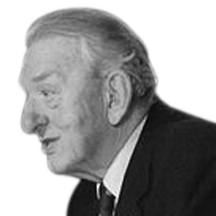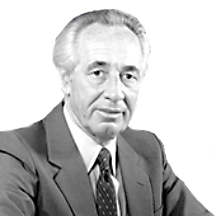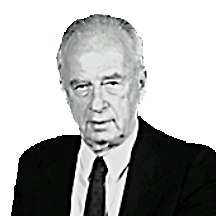Found 3 Results

George Olah
Prof. George Olah’s research terminology includes “carbocations” and “superacids”, terms that in order to fully understand you literally need to spend a life time in a lab.
Let us, then, convert these terms to easy words any layman can relate to: fuel substitute. In other words – “Methanol Economy”.
Methanol is the simplest alcohol, that can be produced from sugar canes, corn or wood. It’s main advantage is being an alternative for oil as an energy source for transportation. It is also environment-friendly, unlike gasoline and diesel that emit carbon dioxide into the atmosphere, thus increase the greenhouse effect and the danger of turning the entire planet into a gigantic hot tanning booth.
George Olah, a Hungarian Jew who was born in 1927 in Budapest, managed to cross the iron curtain in 1956 and came to the United States. Moving from cold communist Hungary to warm liberal California must have agreed with him, for he became one of the most prolific scientists of our time. He registered 120 patents, published 1,400 academic articles, over 20 books, including one on the “Methanol Economy”, won dozens of prestigious awards, 15 honoris causa degrees, and in 1994 – the Nobel Prize in economics.

Peres Shimon
Shimon Peres was born in 1923 in Vishneva, Poland, and at the age of 11 settled in what was then Palestine. He was a pupil at the “Geoula” school in Tel-Aviv and later at the Ben Shemen youth village. As a member of a youth group he joined Kvutsat Alumot in the Galiliee.
On the eve of the establishment of the state of Israel, David Ben-Gurion, extremely impressed by the young and talented Peres, recruited him for some missions within the framework of the Hagana. Peres rapidly made a name for himself as a man of administrative and intellectual capacity in whom Ben-Gurion had complete faith and who became his confidant in matters concerning the ministry of defense. Within a few years Shimon Peres became director general of the ministry and later, Deputy Minister of Defense.
Peres devoted himself to ensuring that Israel received modern weapons systems from abroad, and later through the establishment of the Israel Defense Industries, and through a nuclear research infrastructure.
After the Yom Kippur War, Shimon Peres was appointed minister of defense in the first government formed by Yitsshak Rabin, and in this capacity he orchestrated “Operation Jonathan” to free the Israeli hostages being held in Entebbe, Uganda.
Following the election upset that brought Menachem Begin to power, Peres became leader of the defeated labor party. It was the previously Hawkish Peres who categorically declared, that world reality had changed and that a strong Israel was sufficient in order for it not to flinch from the creation of a new peaceful Middle East.
Following the formation of the National Unity government in 1984, he was prime minister for the first two years and then in accordance with the rotation agreement between him and Yitshak Shamir, he then became foreign minister and later minister of finance.
In 1992, with the election victory of the Labor Party led by Yitshak Rabin, Peres was again appointed foreign minister and after many years of conflict between the two leaders, an agreed division of spheres of activity was created which led to cooperation and friendship.
Minister of Foreign Affairs, Shimon Peres , was active on all levels in order to accelerate the peace process. His efforts bore fruit, and after a century of hostility, a dramatic turning point was reached at Oslo with the mediation of the Norwegian foreign minister: talks were held between the Palestine Liberation Organization, headed by Yasser Arafat, and an official Israel, and a declaration of principles was signed prior to a permanent arrangement between the two peoples.
The first steps on the road to an agreed solution of the Palestinian problem led the way to the signing, in October 1994, of a full peace treaty between the State of Israel and the Hashemite Kingdom of Jordan and the slow development of normal relations with the majority of the Arab nations.
This historical dialogue won international acclaim when Shimon Peres, Yitshak Rabin and Yasser Arafat were awarded the 1994 Nobel peace prize for their courage on the way to the desired goal.
The peace process, however, met opposition from radical elements on both sides. Besides increased Arab terrorism, extremist Jewish circles mounted an unbridled campaign of incitement that reached its climax with the assassination of Prime Minister Yitshak Rabin on October 4, 1995.
Shimon Peres’s nomination as prime minister was approved by the Kenesset almost unopposed, and he declared his determination to maintain and accelerate the peace process with all Israel’s Arab neighbors.

Rabin Yitshak
Yitshak Rabin was born in Jerusalem in 1922. He was a pupil at the Tel Aviv “School for Worker’s Children” and later studied at the Kadoorie Agricultural College. He joined the Palmach in 1940 and participated both as a soldier and commander, in numerous daring operations. In 1947, he was appointed deputy-commander of the Palmach and in 1948, when he was only twenty-six years old, he commanded the Harel Brigade which took part in the fight for Jerusalem.
With the establishment of the Israel Defense Forces, Yitshak Rabin filled numerous posts and in 1964 was appointed the IDF’s seventh Chief of Staff. In 1967, in the Six-Day War, he led the IDF to a brilliant and lightning victory over the Egyptian, Syrian, and Jordanian armies, in which the crowning glory was the reunification of Jerusalem. The speech given by Yitshak Rabin on Mount Scopus, upon receiving an honorary doctorate from the Hebrew University, symbolized and underscored the humanistic heritage that guided the Jewish fighting man and woman.
Rabin retired from the army in 1968, to become Israel’s ambassador in the United States. In 1973 He was elected to the Knesset and served for a short time as minister of labor in Golda Meir’s government.
In the wake of the military disaster of the Yom Kippur War, Golda Meir resigned and Yitshak Rabin was rocketed to the Prime Minister’s Office. It was during his term of office that Israel signed the Disengagement of Forces Agreements with Egypt and Syria.
Rabin resigned the premiership in 1977 and in 1992, when the Labor Party returned to power, he returned as Prime Minister, vowing to push forward the peace process with the Arab nations, that had begun at the 1991 Madrid Conference.
The Rabin’s government’s most significant achievement was the historic turning point in the relations between Israel and the Palestinians. Total hostility changed to open negotiations which led, in September 1993, to the famous handshake between Yitshak Rabin and Yasser Arafat in Washington, and to the signing of the Declaration of Principles which led the way to a five-year interim agreement prior to a permanent arrangement between Israel and the Palestinians.
The first steps on the road to an agreed solution of the Palestinian problem led the way to the signing, in October 1994, of a full peace treaty between the State of Israel and the Hashemite Kingdom of Jordan and the slow development of normal relations with the majority of the Arab nations.
This historical dialogue won international acclaim when Yitshak Rabin, Shimon Peres and Yasser Arafat were awarded the 1994 Nobel peace prize for their courage in surmounting all obstacles and achieving the desired goal.
The peace process, however, met with increased Arab terrorism and intense opposition from both radical religious and right-wing circles and the opposition parties in Israel.
On Saturday evening, November 4, 1995, at the conclusion of a huge rally in support of the peace process, a member of a right-wing religious group infiltrated the ring of security men around the prime minister and fired three fatal shots at him.
Deep national mourning, the like of which had never previously been experienced, enveloped the citizens of Israel. There was great sorrow at the loss of a courageous and beloved leader, a fighter who had led his people in times of war, and a statesman who had had the wisdom to lead them towards peace.
Rabin’s death revealed the depth of identification of the young people of Israel with his straightforward personality and his ‘sabra’ image, and their belief in, and desire for, peace.

free text
Select a Nobel category:
- Chemistry
- Economics
- Literature
- Medicine
- Peace
- Physics
Select first letter of winner's name:
- A
- B
- C
- D
- E
- F
- G
- H
- I
- J
- K
- L
- M
- N
- O
- P
- Q
- R
- S
- T
- U
- V
- W
- X
- Y
- Z
Search Results
Found 0 Results
No search results

region on map
